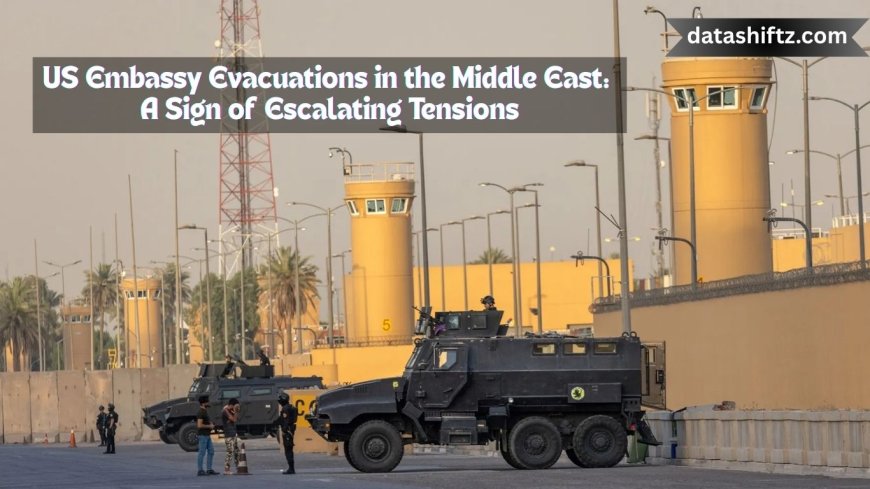US Embassy Evacuations in the Middle East: A Sign of Escalating Tensions

Introduction
In a significant development on June 12, 2025, the United States initiated the partial evacuation of its embassy in Baghdad, Iraq, and authorized the voluntary departure of non-essential personnel and their families from diplomatic missions in Bahrain, Kuwait, and the United Arab Emirates. This move underscores the growing concerns over regional instability and the potential for military escalation in the Middle East.
Reasons Behind the Evacuations
1. Stalled Nuclear Negotiations with Iran
The primary catalyst for these evacuations is the deadlock in nuclear negotiations between the U.S. and Iran. Despite multiple rounds of talks, both parties have failed to reach a consensus, particularly over Iran's uranium enrichment activities. The U.S. insists on halting enrichment, while Iran maintains its right to pursue nuclear technology for peaceful purposes. This impasse has heightened fears of potential military confrontation.
2. Israeli Military Preparations
Reports indicate that Israel is preparing to strike Iranian nuclear facilities, which could provoke Iranian retaliation against U.S. interests in the region. In response, the U.S. has taken precautionary measures to safeguard its personnel and assets. President Donald Trump emphasized the necessity of the evacuation, stating, "They can't have a nuclear weapon, very simple. We're not going to allow that."
3. Threats from Iran
Iran has issued explicit threats to target U.S. bases in the Middle East if attacked. These warnings have prompted the U.S. to reassess the safety of its diplomatic missions and military installations in the region. The U.S. State Department's decision to reduce its presence reflects a strategic response to these escalating threats.
Affected Regions and Facilities
The evacuation orders encompass several key locations:
-
Baghdad, Iraq: Non-essential personnel have been ordered to depart, and the embassy is operating with limited staffing.
-
Bahrain, Kuwait, and the United Arab Emirates: Voluntary departure of family members of U.S. military personnel has been authorized.
-
U.S. Military Bases: Precautionary measures are being implemented to ensure the safety of personnel at bases such as Al-Udeid in Qatar.
Table: Timeline of Key Events Leading to Evacuations
| Date | Event |
|---|---|
| June 10 | Israeli Defense Minister confirms preparations for a strike on Iran. |
| June 11 | Iran warns of retaliation against U.S. bases if attacked. |
| June 12 | U.S. orders partial evacuation of Baghdad embassy and voluntary departures from Gulf missions. |
Countries Affected by U.S. Evacuation Orders
-
Iraq: Partial embassy evacuation in Baghdad.
-
Bahrain: Voluntary departure authorized for family members of U.S. military personnel.
-
Kuwait: Voluntary departure authorized for family members of U.S. military personnel.
-
United Arab Emirates: Voluntary departure authorized for family members of U.S. military personnel.
Conclusion
The U.S. embassy evacuations in the Middle East signify a critical juncture in regional diplomacy and security. As tensions continue to rise, the international community watches closely, hoping for a de-escalation of hostilities and a return to diplomatic dialogue.






























